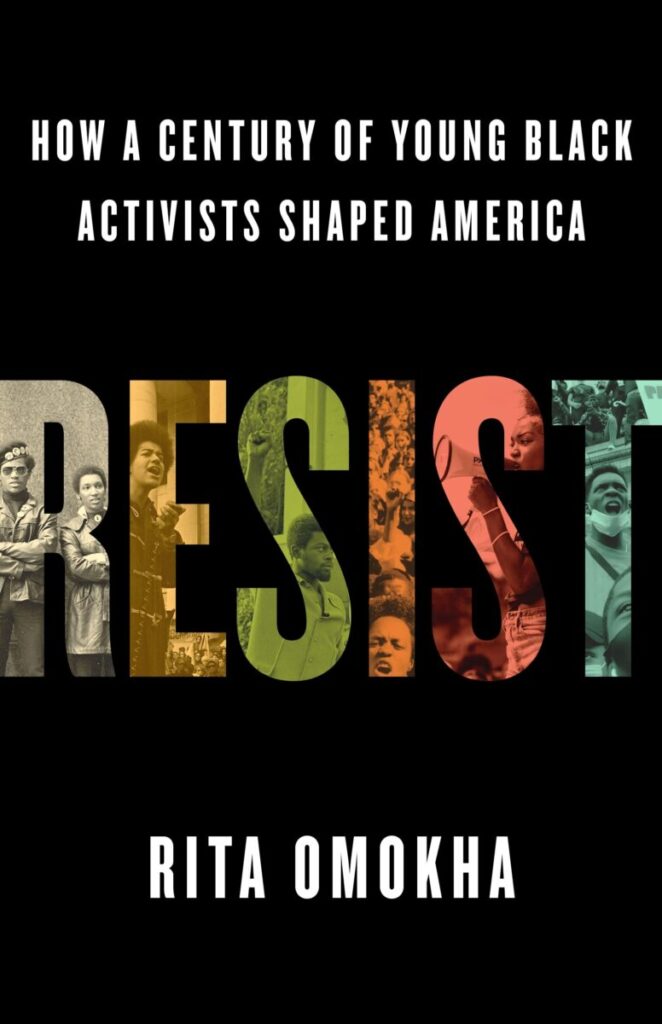By Terri Schlichenmeyer
Throughout history, when decisions were needed, the answer has often been “no.”
No, certain people don’t get the same education as others. No, there is no such thing as equality. No, voting can be denied and no, the laws are different, depending on the color of one’s skin. And in the new book, “Resist!” by Rita Omokha, no, those things have not been accepted meekly.
In 1995, after she and her brothers traveled from their native Nigeria to join their mother at her new home in the South Bronx, young Rita Omokha’s eyes were opened. She quickly understood that the color of her skin – which was “synonymous with endless striving and a pursuit of excellence” in Nigeria – was “so problematic in America.”
That became a bigger matter to Omokha later, fifteen years after her brother was deported: she “saw” him in George Floyd, and it shook her. Troubled, she traveled America on a “pilgrimage for understanding [her] Blackness…”. She began to think about the “Black young people across America” who hadn’t been or wouldn’t be quiet about racism any longer.
She starts this collection of stories with Ella Josephine Baker, whose parents and grandparents modeled activism and who, because of her own student activism, would be “crowned the mother of the Civil Rights Movement.” Baker, in fact, was the woman who formed the Student Nonviolent Coordinating Committee, or SNCC, in 1960.

No doubt, by now, you’ve read a lot of books about activism. There are many of them out there, and they’re pretty hard to miss. With that in mind, there are reasons not to miss “Resist!”
You’ll find the main one by looking between the lines and in each chapter’s opening.
There, author Rita Omokha weaves her personal story in with that of activists at different times through the decades, matching her experiences with history and making the whole timeline even more relevant. In doing so, the point of view she offers – that of a woman who wasn’t totally raised in an atmosphere filled with racism, who wasn’t immersed in it her whole life – lets these historical accounts land with more impact.
This book is for people who love history or a good, short biography, but it’s also excellent reading for anyone who sees a need for protest or action and questions the status quo. If that’s the case, then “Resist!” may be the answer.




